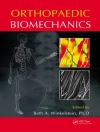The discipline of statistical genetics is highly computational. Be it exact compu- tionalmethods, simulationbased, orahybridofthetwo, computationalpackagesare indispensable tools and constant companions of researchers in the ?eld. This ha- bookisintendedtoprovidehumangeneticistsandotherbiomedicalresearcherswith guidance on selections of appropriate computational methods and software pa- ages for their speci?c genetic problems. It may also be used by students and other learners as a reference in conjunction with a more theoretical and/or methodolo- cally oriented text book. This book tries to strike a balance between methodological expositions and practical guidelines for software selections. Wherever possible, comparisons among the competing methods and software are made to highlight the relativeadvantagesanddisadvantagesoftheapproaches, so thatthe readercanmake informed choices to best match their speci?c needs. Human genetics has been undergoing an evolution in the past several years as new knowledge and technologies are transforming the ?eld, leading to numerous new discoveriesof genes associated with complex traits such as cancer, obesity, and diabetes. Many recent genome-wide association studies employ the case–control design, where the study subjects consist of unrelated affected individuals and n- mal controls. For each individual, a large number of genetic markers are queried.
Cuprins
Population Genetics.- Haplotype Structure.- Linkage Analysis of Qualitative Traits.- Linkage Analysis of Quantitative Traits.- Markov Chain Monte Carlo Linkage Analysis Methods.- Population-Based Association Studies.- Family-Based Association Studies.- Haplotype Association Analysis.- Multiple Comparisons/Testing Issues.- Estimating the Absolute Risk of Disease Associated with Identified Mutations.- Processing Large-Scale, High-Dimension Genetic and Gene Expression Data.












